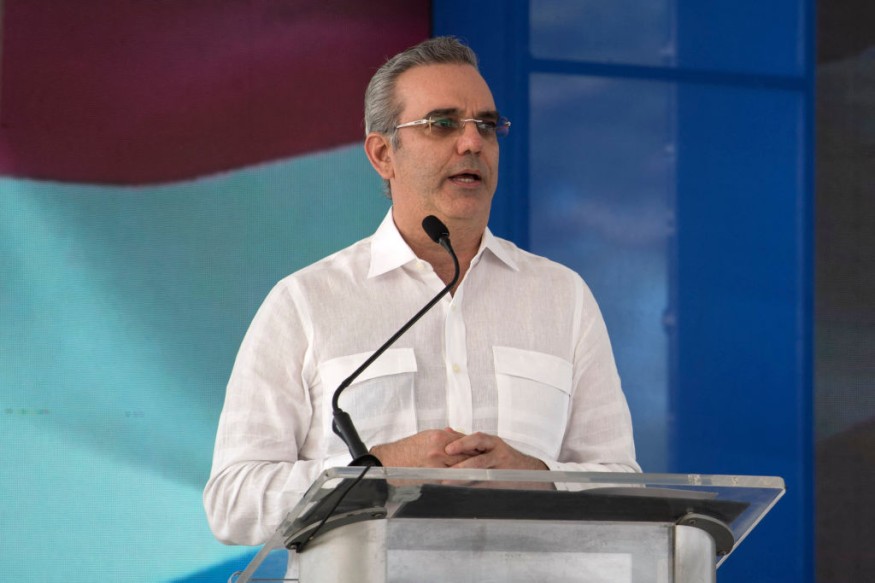Dominican Republic Luis Abinader Bars Haiti's Ex-Leader From His Country as Tensions Between 2 Countries Rise

Dominican Republic President Luis Abinader has restricted the entry of former interim prime minister of Haiti, Claude Joseph, into his country as tensions between the two nations rise.
According to Associated Press, the order against Joseph, which Abinader signed Wednesday, also bans 12 Haitian gang leaders from entering the country. The order comes after Haiti becomes more unstable following the July 2021 assassination of the country's president, Jovenel Moise.
Joseph welcomed Abinader's ban against him, tweeting that the Dominican Republic president ranks him as "enemy no. 1 of the Dominican racists."
He added that he does not consider it a sanction but an honor. Joseph said he accepts the order against him "in the name of fathers Dessalines, Toussaint, and Christophe." The former Haitian interim prime minister and now aspiring presidential candidate was referencing Haitian revolutionary heroes.
Abinader's order noted to restrict entry to anyone if they have a criminal record or pose a threat to national security. Joseph was foreign affairs minister when Moise was assassinated. He then became interim prime minister for a short period of time, supported by the police and the military.
Last November, Claude Joseph suggested that the Dominican Republic was not a safe country and the Dominican Republic officials bristled at the allegation. Since then, the ties between the two countries have soured.
Haitians Fleeing to the Dominican Republic
ABC News reported an influx of Haitian migrants crossing over to the Dominican Republic as Haiti sinks deeper into poverty, with increased gang activity such as kidnappings and killings since Jovenel Moise was killed.
The increase of migrants also caused a rise in racist and xenophobic incidents in the Dominican Republic against Haitians.
In December 2021, AP reported that the increasing mistreatment of the Dominican Republic's Haitians coincided with the rise of Luis Abinader, who took office in August 2020.
Haitian officials and activists said the government is violating laws and agreements by deporting pregnant women, separating children from parents, and arresting people between 6 p.m. and 6 a.m.
Abinader reportedly suspended a student-visa program for Haitians and prohibited companies from drawing more than 20% of their workforce from migrant workers.
The Dominican Republic president also ordered Haitian migrants to register their whereabouts. In February, Luis Abinader's administration announced they would build a multi-million-dollar wall along the Haitian border.
Haiti Instability
In February, a large number of police officers in Haiti patrolled the streets while schools and businesses were shut down after Jovenel Moise was killed.
Prime Minister Ariel Henry took the position weeks after Moise was killed, with opponents demanding Henry to step down. According to Al Jazeera, critics argued that his administration was unconstitutional.
Bocchit Edmond, Haiti's ambassador to the United States, told AP at the time that they were in a situation where fear was taking over peace. Edmond said their country cannot continue to "live that way."
The nation of 11 million has experienced worsening gang violence amid the ongoing political crisis with the death of Moise. Henry earlier promised to create a provisional electoral council to manage elections in Haiti.
READ MORE : Honduras Travel: Safety Advisories and Tourist Attractions You Should See During Your Visit in Honduras
This article is owned by Latin Post.
Written by: Mary Webber
WATCH: Dominican Republic to Build Wall in Bid to Keep Out Haitians - From Al Jazeera English
Subscribe to Latin Post!
Sign up for our free newsletter for the Latest coverage!
© 2026 Latin Post. All rights reserved. Do not reproduce without permission.















